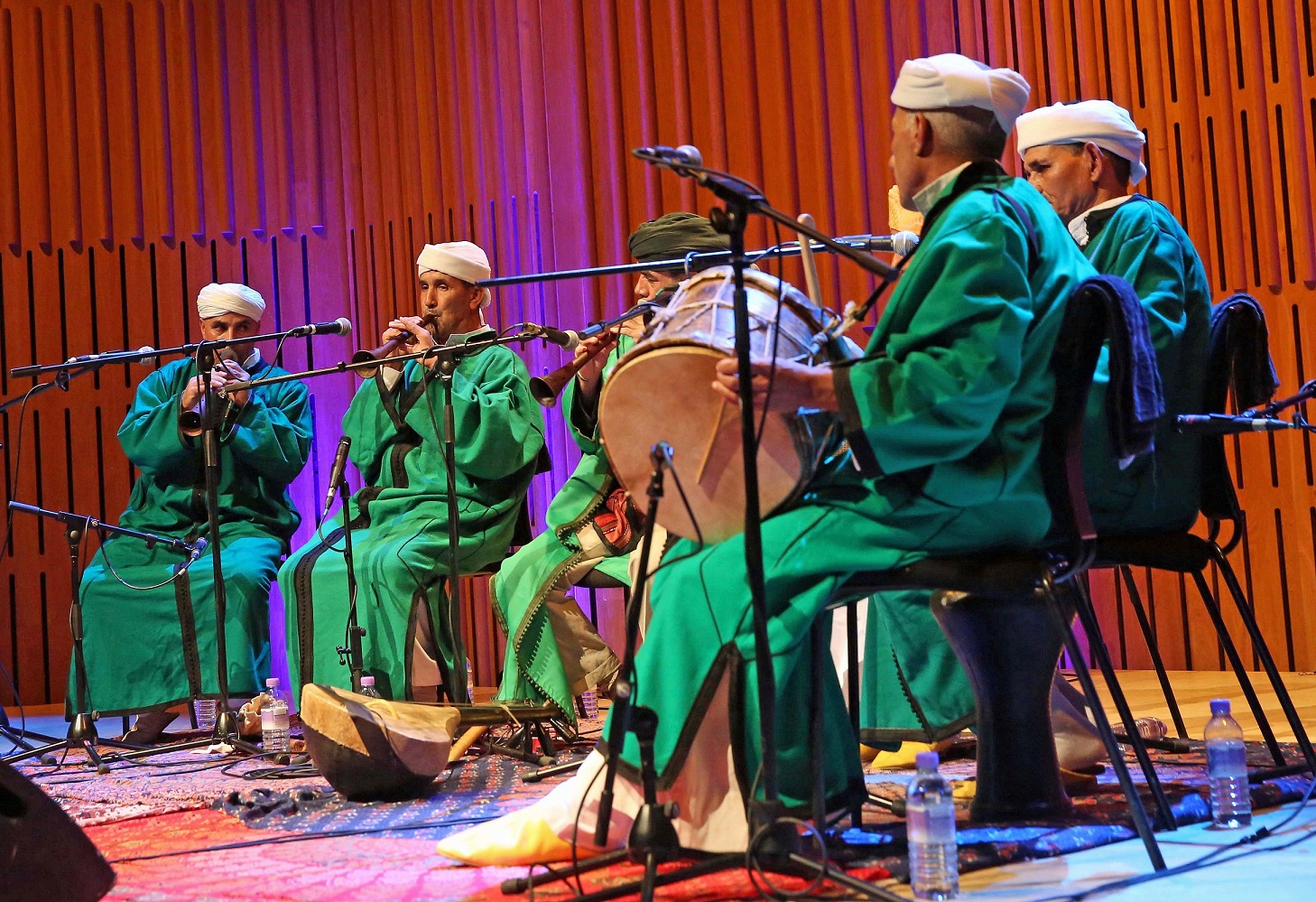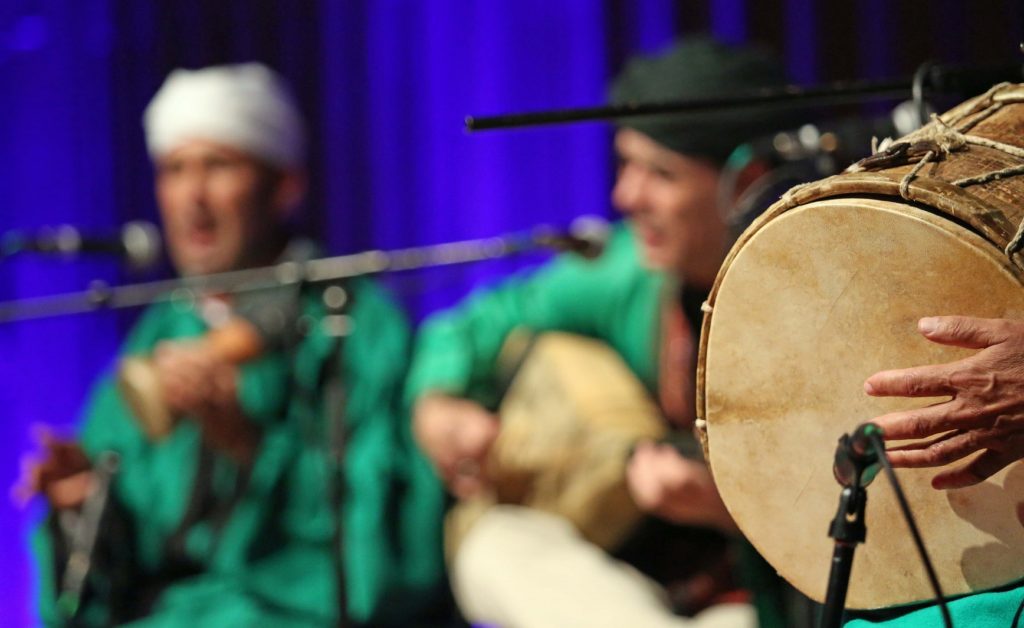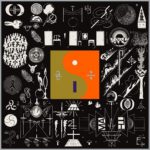The Jajouka come from a small goat-herding village of the same name that lies in the foothills of the southern Rif Mountains in northern Morocco. Their hypnotic Sufi trance music has a reputation for being the oldest in that country. The name The Master Musicians of Joujouka was first used after the novelist William S. Burroughs and artist Brion Gysin – members of the Beat Generation, a cultural and literary movement that emerged out of America in the 1950’s – first visited the village six decades ago. Burroughs referred to the Master Musicians as “a 4,000-year-old rock and roll band” a term, whilst undoubtedly inaccurate (1,300 years is probably much nearer the true mark), has become a defining description of them.
The Master Musicians were brought into the wider Western consciousness after Gysin took Brian Jones to Jajouka in 1968. The founding member of The Rolling Stones recorded the Master Musicians’ music as they played in the village during their annual week-long Rites of Pan Festival. The recording was subsequently released on Rolling Stones Records in 1971 as Brian Jones Presents the Pipes of Pan at Joujouka. Not only was it the very first release on the Stones’ own record label, but it is also an album that is widely regarded as being the first ever world music LP.
Tonight The Master Musicians of Joujouka are in Leeds and, in what is again a wonderful exclusive for the Howard Assembly Room (they had enjoyed a similar coup with the Algerian musician Souad Massi earlier in the month at the opening show of their autumn season of events), this is the group’s only show outside of London.
Hadj Abdessalem Attar had led The Master Musicians of Jajouka on their first recordings with Brian Jones, the producer and photographer Joel Rubiner and the American jazz legend Ornette Coleman in the early 70’s. Now, following firmly in his father’s footsteps, it is Bachir Attar who leads the current incarnation of the group. Later in this evening’s quite spellbinding performance, and confirming The Master Musicians unbroken lineage, Bachir Attar recalls how as a young boy he saw Brian Jones in the village of Jajouka, conjuring up in doing so the most fantastic images of a time when the bohemian West was drawn inexorably to the creative freedom afforded them by northern Africa.
For ninety minutes tonight, Bachir Attar and his five fellow musicians have us in their complete and utter thrall as they weave hypnotic, repetitive patterns of sound together with an intricate instrumental amalgam of ghaita (double-reed pipes made of apricot wood), gimbri (a three stringed skin-covered bass plucked lute), kamanja (a bowed, string instrument that is played upright on the knee) and bendir and tebel (various sized drums with heads made of goatskin).
The six men conjure from their instruments what is ultimately a sacred sound, one that is as primitive as it is pure and from which you can draw a direct line to the more contemporary, repetitive rhythms that underpin much of today’s psychedelic and electronic music. The end result is nothing short of mesmeric, taking the listener off on a blissful journey of inner calm and heightened consciousness.
Photo credit: Simon Godley
More photos from this show can be found HERE





